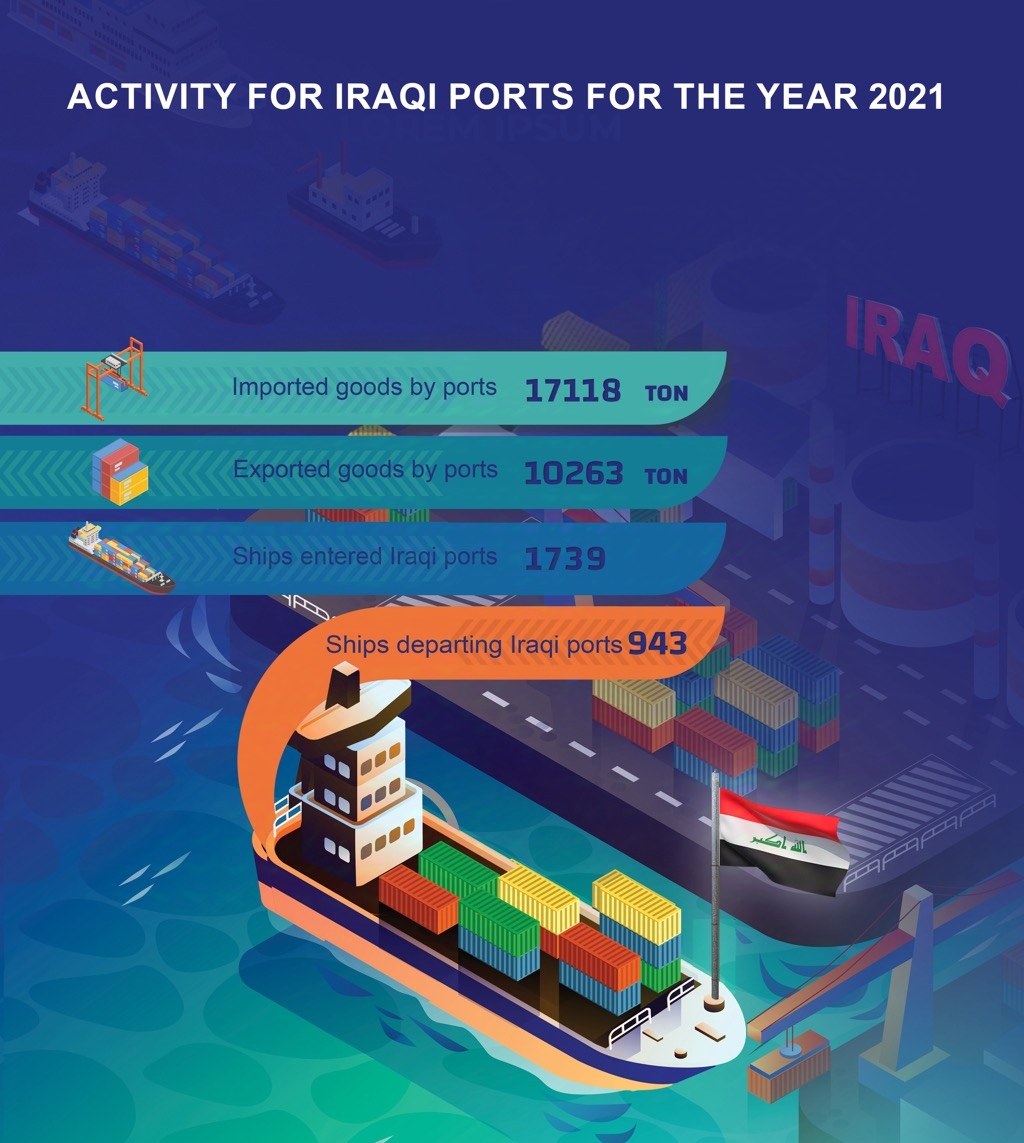
Iraq’s main imported goods
Iraq’s economy, heavily dependent on oil exports, relies significantly on imports for a wide range of essential goods. This reliance on imports reflects both its consumer demands and industrial needs. Iraq’s primary imports include machinery and transport equipment, food products, manufactured goods, chemicals, and other essential items. Here’s a detailed overview of Iraq’s major imported goods and the factors driving these imports.
1. Machinery and Transport Equipment
Machinery and transport equipment make up a large portion of Iraq’s imports, accounting for a significant share of the country’s overall import expenditure. This category includes industrial machinery, construction equipment, vehicles, and electrical machinery. Due to Iraq’s focus on infrastructure development and rebuilding efforts following years of conflict, the demand for construction machinery, vehicles, and related equipment has surged. Moreover, Iraq’s oil industry, the cornerstone of its economy, requires substantial machinery for extraction, refining, and transportation, which it often imports from countries like the United States, China, and Europe. Vehicles are another substantial part of this category, as the demand for personal and commercial transportation has increased with urban development.
2. Food Products
As Iraq’s agriculture sector has faced challenges, including water scarcity, desertification, and inefficient farming practices, the country heavily depends on food imports to meet domestic demand. Iraq imports staples like rice, wheat, sugar, tea, cooking oil, and dairy products. The largest suppliers of these goods are neighboring countries, such as Turkey and Iran, as well as more distant sources like India, the United States, and European countries. With a growing population and a heavy reliance on wheat-based diets, particularly bread, Iraq imports large quantities of wheat and other grains. Furthermore, fruits and vegetables are also imported to meet the demand in urban centers where local production does not suffice.
3. Manufactured Goods
Manufactured goods cover a broad spectrum of products, from textiles and clothing to household items and furniture. Iraq imports a substantial amount of manufactured goods due to limited domestic production capabilities. Most consumer goods, including electronics, appliances, and clothing, are imported from countries like China, Turkey, and India, as Iraq lacks a well-established manufacturing sector. With rising consumer demand in urban areas and an increasing interest in foreign goods, this category has consistently grown over the years.
4. Chemicals and Pharmaceuticals
The chemicals and pharmaceuticals sector forms another crucial component of Iraq’s imports. Chemicals are essential for Iraq’s agricultural and oil industries, where they are used for fertilizers, pesticides, and oil extraction processes. Additionally, Iraq heavily relies on imported pharmaceuticals and medical supplies, as the healthcare sector requires various medicines, vaccines, and medical devices. These imports mainly come from India, China, and the European Union. With the rising need for healthcare infrastructure and services, especially following years of conflict that affected the healthcare system, Iraq’s dependence on pharmaceutical imports has become critical to meeting public health needs.
5. Petroleum Products
Although Iraq is a significant producer of crude oil, it paradoxically imports refined petroleum products. This is because Iraq’s refining capacity is limited, and it cannot meet domestic demand for products such as gasoline, diesel, and kerosene. The lack of sufficient refineries to process its own crude oil forces Iraq to import refined products, especially from nearby oil-producing nations with refining capabilities. Iraq’s government has invested in improving refinery infrastructure, but these projects take time, leaving the country dependent on imported petroleum products for now.
6. Textiles and Apparel
Iraq imports a large volume of textiles, clothing, and footwear. Although this may seem surprising given that clothing is not a strategic necessity, consumer demand in Iraq has shifted toward imported garments due to quality, availability, and fashion preferences. Major suppliers include China, Turkey, and other Asian countries that have established themselves as textile exporters. This reflects an increase in consumer purchasing power and changing tastes, particularly among the youth.
7. Electronics and Technology
The demand for electronics and technology has surged as Iraqis seek access to modern conveniences and technology for business, education, and entertainment. Iraq imports a variety of electronic products, including mobile phones, computers, televisions, and household appliances. China and other East Asian countries are primary suppliers, providing these goods at competitive prices. The growth in this sector highlights the shift in lifestyle and increased connectivity among Iraqi citizens.
Conclusion
Iraq’s main imported goods reflect its ongoing efforts to rebuild and modernize its infrastructure, meet the basic needs of its population, and respond to growing consumer demand. Machinery and transport equipment support reconstruction and the oil sector, while food imports meet essential dietary requirements due to agricultural challenges. Pharmaceuticals and chemicals are vital for healthcare and industry, while consumer goods and electronics meet the needs of a populace looking for modern goods.




Leave a Reply